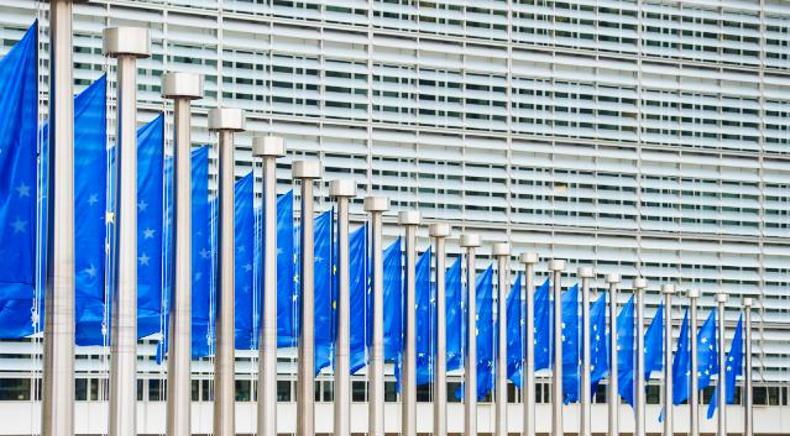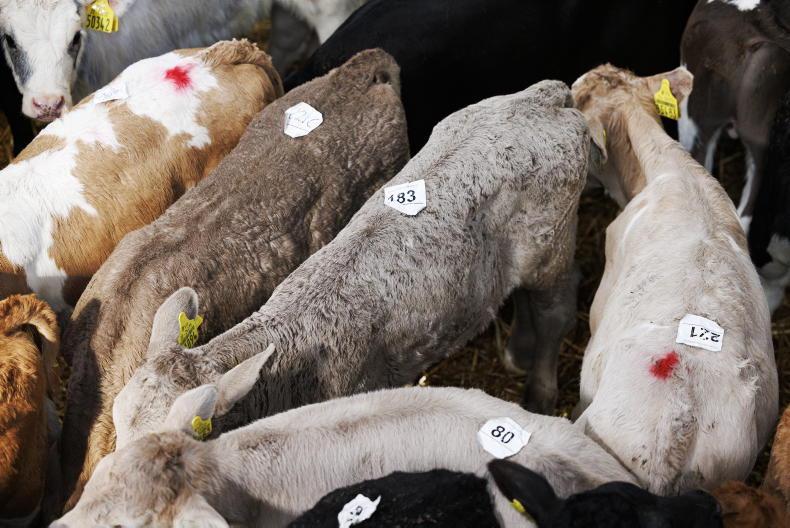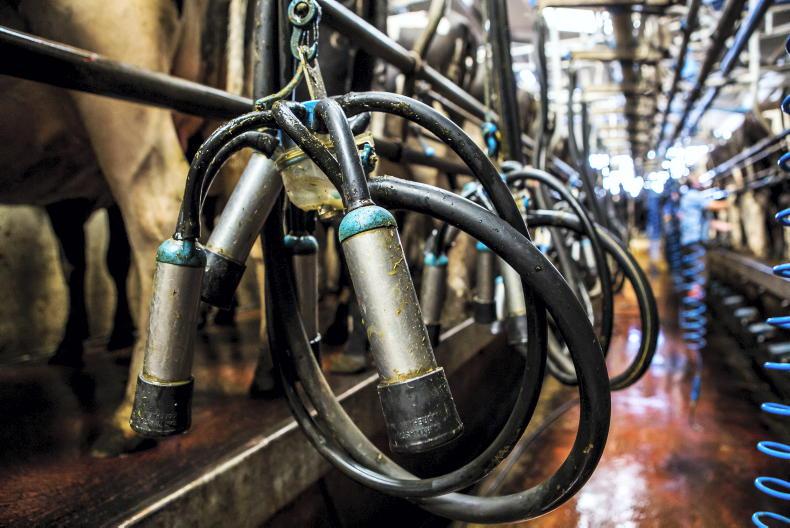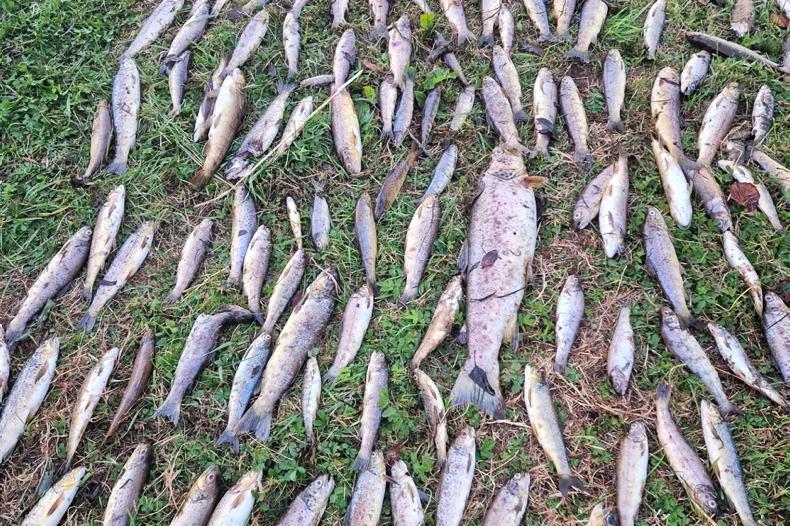Ireland celebrates 50 years of EU membership and very few people don’t agree that, overall, it has been a positive experience for Irish farmers and the wider economy.
The Ireland that joined the then-EEU with the UK and Denmark was a totally different place and while we may at times yearn for 'the good old days', the reality that for most of the population in farming and beyond, these were an illusion.
There may be a debate on values lost along the way, but notwithstanding the current cost of living issues and housing crisis, there are career opportunities now that couldn’t have been imagined prior to joining the EEC.
Overall, farmers have had it good along the way, but this is one area that there is a huge question mark over for the next 50 years.
Farmers by now are familiar with the EU having made a complete U-turn in its agriculture policy from supporting efficient production of affordable food to supporting reduction of farmland productivity and replacing it with returning land to its pre-farmed state.
EU now costs money
Ireland is also now a contributor of revenue to the EU, as opposed being a recipient, as we were for most of our first half century of membership.
The EU is also on a path to ever-increasing open trading with likeminded global economies, most of which have negative consequences for agriculture.
The Russian invasion of Ukraine and ongoing war has put a spotlight on Ireland’s policy of neutrality and minimal contribution to EU defence policy.
Irish people in key positions
Since Ireland joined the EEC - the forerunner of the EU - there is a general feeling that we punched above our weight in filling senior positions across the EU institutions.
However, when I visited last week, I was struck by how many what I would consider big hitters who have now retired or are at an advanced stage of their careers.
Worryingly, I was hearing that the isn’t a follow-up wave of Irish officials awaiting promotion into these roles.
There is a two-fold explanation for this. Since the arrival of the Celtic Tiger in Ireland over 20 years ago, a career in the EU institutions didn’t have the appeal it had in the tougher economic times of the 1980s and early 1990s.
Ireland’s presence inevitably faced dilution for competition for senior roles
Also, with the last rounds of enlargement to eastern Europe, Ireland’s presence inevitably faced dilution for competition for senior roles.
That said, opportunities remain and we would do well to consider how other member states tend to develop networks of compatriot’s departments that they lead - one for the graduates and school leavers to consider as they approach the end of term in school and colleges.
There may be a temptation to conclude that Ireland’s best days in the EU are behind us, but we shouldn’t forget the enormous benefit of the single market.
Also, the EU has always been about constant change throughout its history and no doubt it will continue to evolve.
In this environment, the importance of a strong farmer advocacy in the corridors of power has never been more vital to protect Irish and EU farmers from the worst negative effects of change and, of course, develop opportunities as they arise.
Read more
Food security moving up Brussels priority list
Signing up to Brussels for another year
Ireland celebrates 50 years of EU membership and very few people don’t agree that, overall, it has been a positive experience for Irish farmers and the wider economy.
The Ireland that joined the then-EEU with the UK and Denmark was a totally different place and while we may at times yearn for 'the good old days', the reality that for most of the population in farming and beyond, these were an illusion.
There may be a debate on values lost along the way, but notwithstanding the current cost of living issues and housing crisis, there are career opportunities now that couldn’t have been imagined prior to joining the EEC.
Overall, farmers have had it good along the way, but this is one area that there is a huge question mark over for the next 50 years.
Farmers by now are familiar with the EU having made a complete U-turn in its agriculture policy from supporting efficient production of affordable food to supporting reduction of farmland productivity and replacing it with returning land to its pre-farmed state.
EU now costs money
Ireland is also now a contributor of revenue to the EU, as opposed being a recipient, as we were for most of our first half century of membership.
The EU is also on a path to ever-increasing open trading with likeminded global economies, most of which have negative consequences for agriculture.
The Russian invasion of Ukraine and ongoing war has put a spotlight on Ireland’s policy of neutrality and minimal contribution to EU defence policy.
Irish people in key positions
Since Ireland joined the EEC - the forerunner of the EU - there is a general feeling that we punched above our weight in filling senior positions across the EU institutions.
However, when I visited last week, I was struck by how many what I would consider big hitters who have now retired or are at an advanced stage of their careers.
Worryingly, I was hearing that the isn’t a follow-up wave of Irish officials awaiting promotion into these roles.
There is a two-fold explanation for this. Since the arrival of the Celtic Tiger in Ireland over 20 years ago, a career in the EU institutions didn’t have the appeal it had in the tougher economic times of the 1980s and early 1990s.
Ireland’s presence inevitably faced dilution for competition for senior roles
Also, with the last rounds of enlargement to eastern Europe, Ireland’s presence inevitably faced dilution for competition for senior roles.
That said, opportunities remain and we would do well to consider how other member states tend to develop networks of compatriot’s departments that they lead - one for the graduates and school leavers to consider as they approach the end of term in school and colleges.
There may be a temptation to conclude that Ireland’s best days in the EU are behind us, but we shouldn’t forget the enormous benefit of the single market.
Also, the EU has always been about constant change throughout its history and no doubt it will continue to evolve.
In this environment, the importance of a strong farmer advocacy in the corridors of power has never been more vital to protect Irish and EU farmers from the worst negative effects of change and, of course, develop opportunities as they arise.
Read more
Food security moving up Brussels priority list
Signing up to Brussels for another year









SHARING OPTIONS